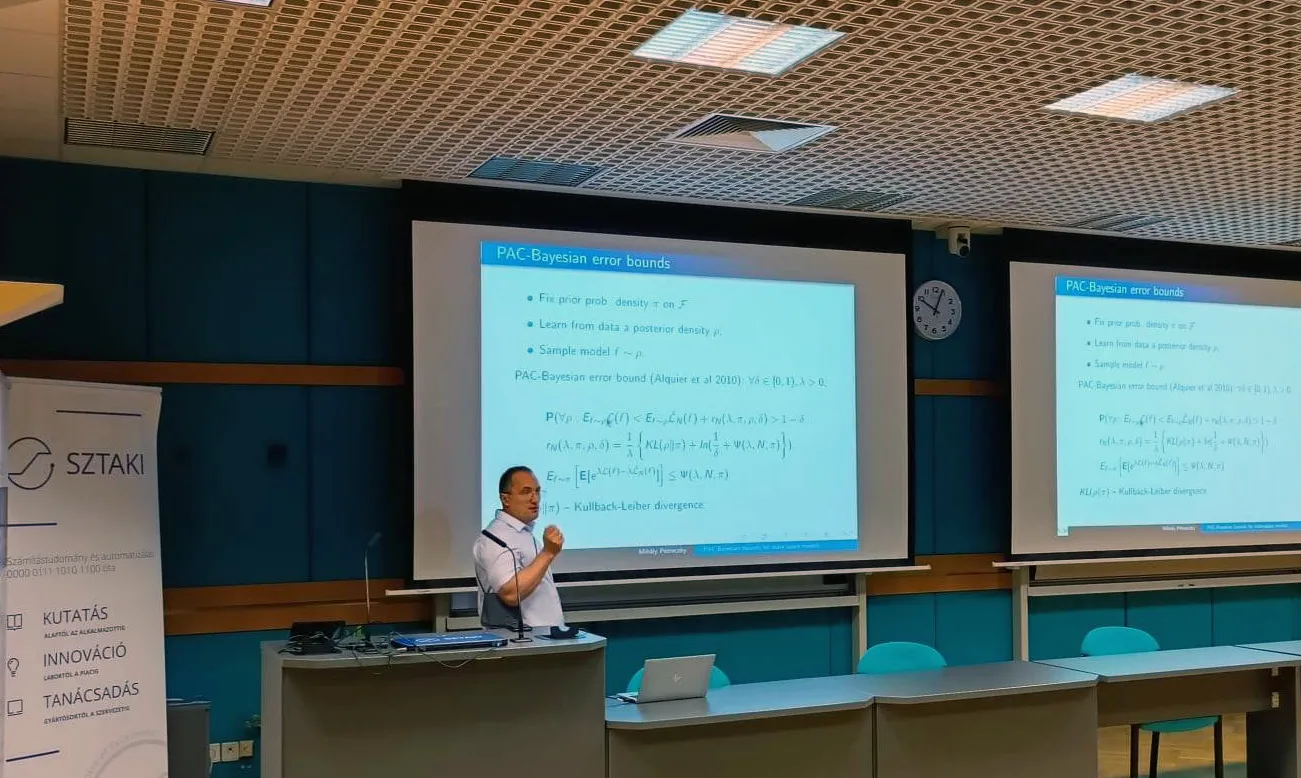Petreczky Mihály, a CNRS kutatója tartott előadást a SZTAKI-ban
2023. május 31.
Május 26-án a SZTAKI Kende Nagytermében Petreczky Mihály, az Université de Lille és a CNRS munkatársa előadást tartott az PAC-Bayes-féle korlátok a lineáris állapottér-reprezentációk tanulásához témakör új eredményeiről.
Az előadás során bemutatta a PAC-Bayesian hibahatárok alkalmazását az idősorok modellezésében gyakran alkalmazott lineáris idejű invariáns állapot-tér modellekre. A kutatás célja olyan hibahatárok származtatása, melyek általánosíthatók más dinamikus rendszerekre, mint például a ekurrensn neurális hálózatok. Az ilyen hibahatárok segíthetnek az algoritmusok elemzésében és új gépi tanulási módszerek kifejlesztésében.
Az előadás angol nyelvű absztraktja:
In this talk I will present recent results on PAC-Bayesian bounds for linear-time invariant (LTI) state-space representations. The latter class of models are widely used to model time series, and they correspond to autoregressive-moving average (ARMA) models. They represent one of the simplest classes of dynamical systems, and their learning theory has a rich history.
Despite the large body of literature for learning LTI state-space representations, there are no results on PAC-Bayesian error bounds for this mode class. The motivation for deriving such error bounds is that they will allow deriving similar error bounds for more general dynamical systems, including recurrent neural networks. In turn, PAC-Bayesian error bounds are known to be useful for analyzing machine learning algorithms and for deriving new ones.
